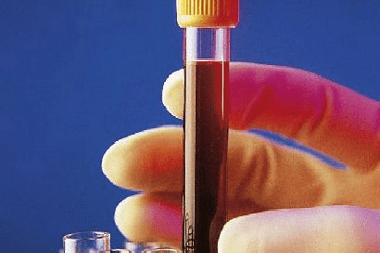Infectious diseases >>>> Septicemia is a cause of blood poisoning
Septicemia is a cause of blood poisoning.

Septicemia (synonym: sepsis, household: blood poisoning) is a pathological condition that develops when pathogenic microorganisms and / or their toxins enter the bloodstream. Septicemia is characterized by a global inflammatory process that affects not a single organ or tissue site, but the entire body as a whole.
Most often, septicemia is provoked by pyogenic bacteria, the source of which can be a separate focus: a furuncle, a carbuncle, an infected wound surface (obtained in contaminated conditions or applied with a contaminated object), an infected deep wound associated with surgery (postoperative complications), phlegmon.
The danger of such a pathology as sepsis lies in the high rate of development, when the immune system cannot cope with the suppression of pathogenic agents. Reproduction of pathogens unregulated by the immune system allows them to spread throughout the body. The disease can occur against the background of any minor tissue infection, if immune responses are weakened or imperfect due to immunodeficiency.
Typical signs of blood poisoning:
- Heat,
- Labored breathing,
- Rapid pulse,
- Violation of the general condition of the body (lethargy, drowsiness),
- Intestinal disorder (vomiting, diarrhea),
- Skin rashes (hemorrhagic rash due to pathogen-damaged walls of small blood vessels),
- Signs of dehydration (dry skin, thirst),
- Lowering blood pressure (with severe sepsis).
The extreme degree of septicemia is septic shock, when blood supply is disrupted, blood pressure drops sharply, urine production slows down (anuria), and confusion appears.
Treatment of blood poisoning is based on antibiotic therapy (taking into account the sensitivity of the pathogen) and immunostimulating therapy. In parallel, detoxification measures are carried out (hemosorption, infusion of blood substitutes, infusion solutions). If necessary, the foci of purulent infection, which gave rise to blood poisoning, are surgically excised. According to indications, treatment with anti-inflammatory drugs is carried out, hemostasis is restored.

Read

Read



























